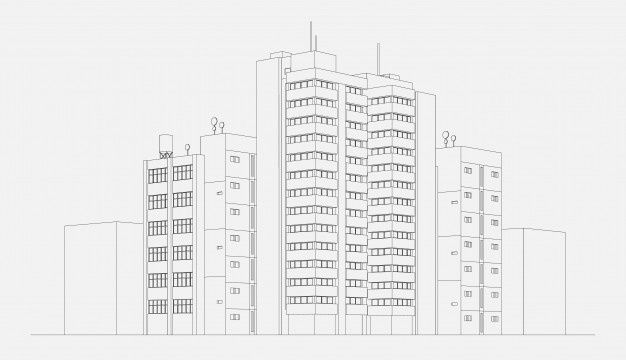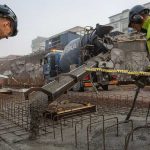The important requirements of radiation shielding concrete are as follows:
1. High density of the concrete ― the higher the density of the concrete, higher the absorption of radiation. The radiation shielding quality of concrete can be increased by increasing its density.
2. The other important requirement of radiation shielding concrete is its structural strength even at high temperature.
Thus to produce high density and high strength concrete, it is necessary to control the water/cement ratio very strictly. Appropriate admixture and proper vibrators for good compaction should be employed, after that good quality control should be followed.
High density concrete used for shielding differs from normal weight concrete in the following respects.
High density concrete should contain sufficient material of light atomic weight, which produces hydrogen. Sometimes in high density concrete serpentine aggregates are used due to their ability to retain water of crystallisation at high temperatures which assure a source of hydrogen. The availability of water of crystallisation in all heavy weight aggregate is not necessary.
High density concrete may contain high content of cement-and may exhibit increased creep and shrinkage. Due to the high density of aggregate, it has a tendency of segregation. Coarse aggregate used may be of only high density mineral aggregate, or a mixture of mineral aggregate and steel particles or only steel particles, Experiments have shown that if only smooth cubical pieces of steel or iron ore are used as coarse aggregate, the compressive strength will not be more than 21 MPa, regardless of the water/cement ratio or grout mixture ratio.
If sheared reinforcing bars are used as aggregate along with good grout, normal strength will be obtained. The grout used in high density pre placed aggregate concrete should be somewhat richer than that used in normal density pre placed concrete. High modulus of elasticity, low thermal expansion, and low elastic and creep deformation are the ideal properties for both high density and normal concrete.
Properties of High Density Concrete:
Following properties of high density concrete have been observed:
1. The strength of this concrete measured on standard cylinders has been found 42 MPa at 28 days for a water/cement ratio 0.58 and 24 MPa at water/cement ratio 0.9.
2. The density of this concrete for a mix of 1:4.6:6.4 with water/cement ratio of 0.58 has been found as 3700 kg/m3.
3. The coefficient of thermal expansion of barite concrete measured in the range of temperature of 4°C to 38°C is found about twice that of normal concrete.
4. The modulus of elasticity and poisson’s ratio of high density concrete and normal concrete are approximately the same.
5. Shrinkage of high density concrete is about 1/4 to 1/3 of the normal concrete.
6. Thermal conductivity, diffusivity etc. of high strength concrete is considerably lower than corresponding values for normal aggregate concrete.
7. Concrete made with barite aggregate does not stand well to weathering.
8. Fine barite aggregate delay the setting and hardening process of the concrete, hence trial mixes are advisable.
9. No entrained air should be permitted in this concrete. However use of de-entrain agent is suggested.



Comments are closed